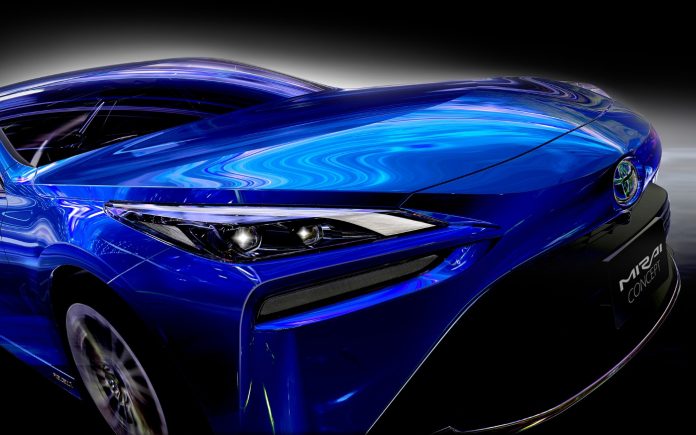A new joint venture takes a promising approach
For several years, Toyota has touted hydrogen fuel cells as a way to power cars. The sporty Toyota Mirai has been at the forefront of the automaker’s ambitions — though auto industry experts have differed as to how realistic Toyota’s plans are for this technology.
A newly-announced joint venture suggests Toyota is increasing their commitment to this technology — and they’re not alone in it. A report from Automotive News (via Bloomberg) notes that Toyota has teamed with a quintet of Chinese companies on an initiative to develop fuel cells.
Toyota’s partners in this new venture, United Fuel Cell System R&D, are Beijing SinoHytec Co., Dongfeng Motor Corp., Guangzhou Automobile Group Co., Beijing Automobile Group Co. and China FAW Corp. Toyota will own 65%; its initial investment will be close to $46 million.
What’s most significant here is the potential for hydrogen to end up powering a host of cars across China — which could then spur global demand. As the article notes:
China has the muscle to change the landscape should it make hydrogen-powered vehicles a national priority. The world’s biggest car market is set to embrace hydrogen fuel-cell vehicles in the same way that it did EVs, Wan Gang, who’s been called the father of China’s electric-car movement, said last year.
Writing at Jalopnik, Erik Shilling explores this move in the context of some other recent announcements from Toyota. Hydrogen fuel cells currently require a lot of energy to make, Shilling notes — but the technology “is more scalable than battery-electric technology.” All of which means that this joint venture could have a substantial impact on the future of transportation.
